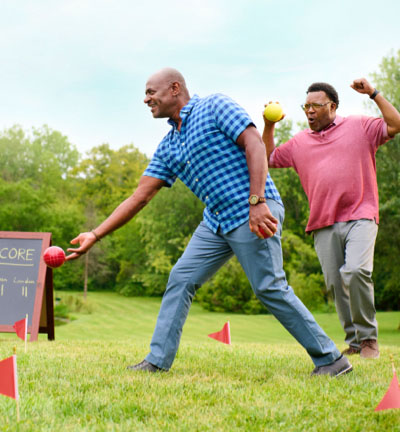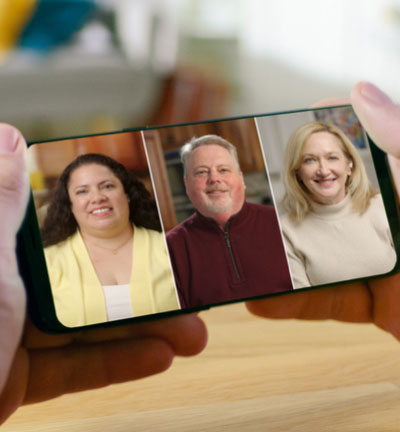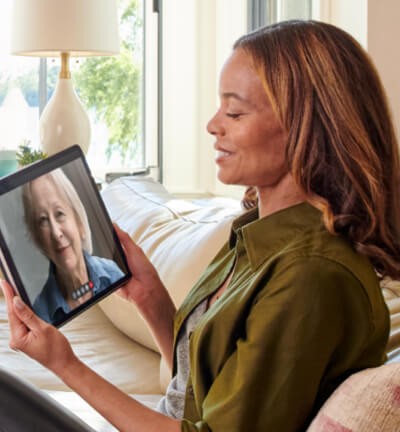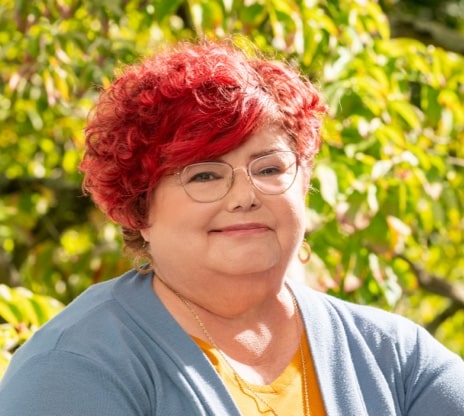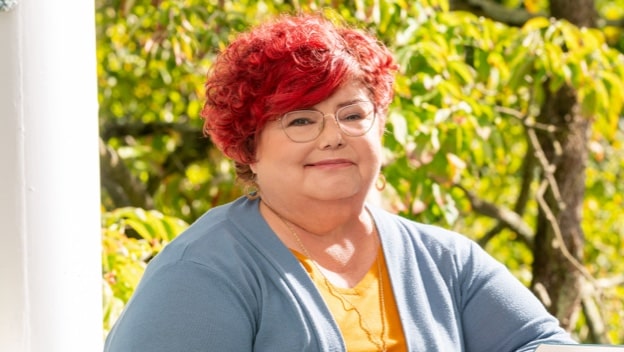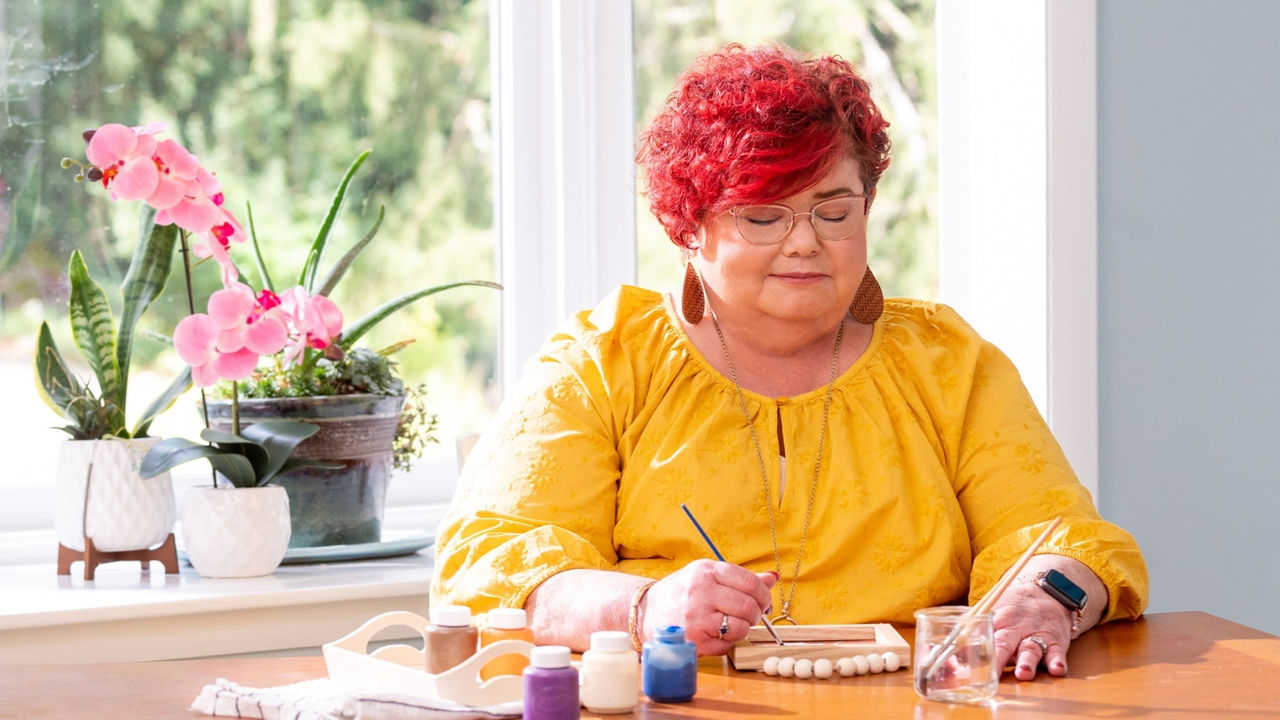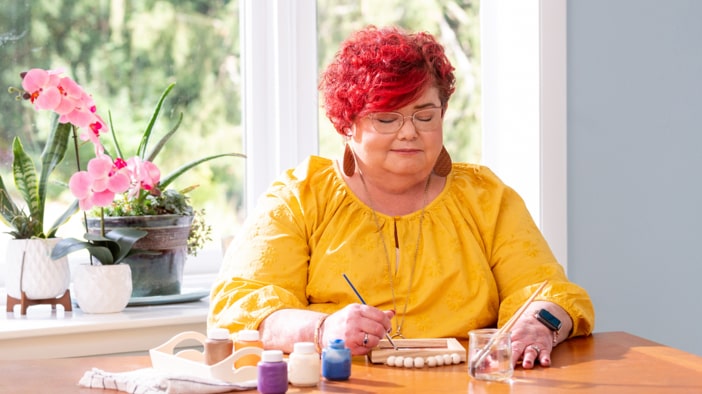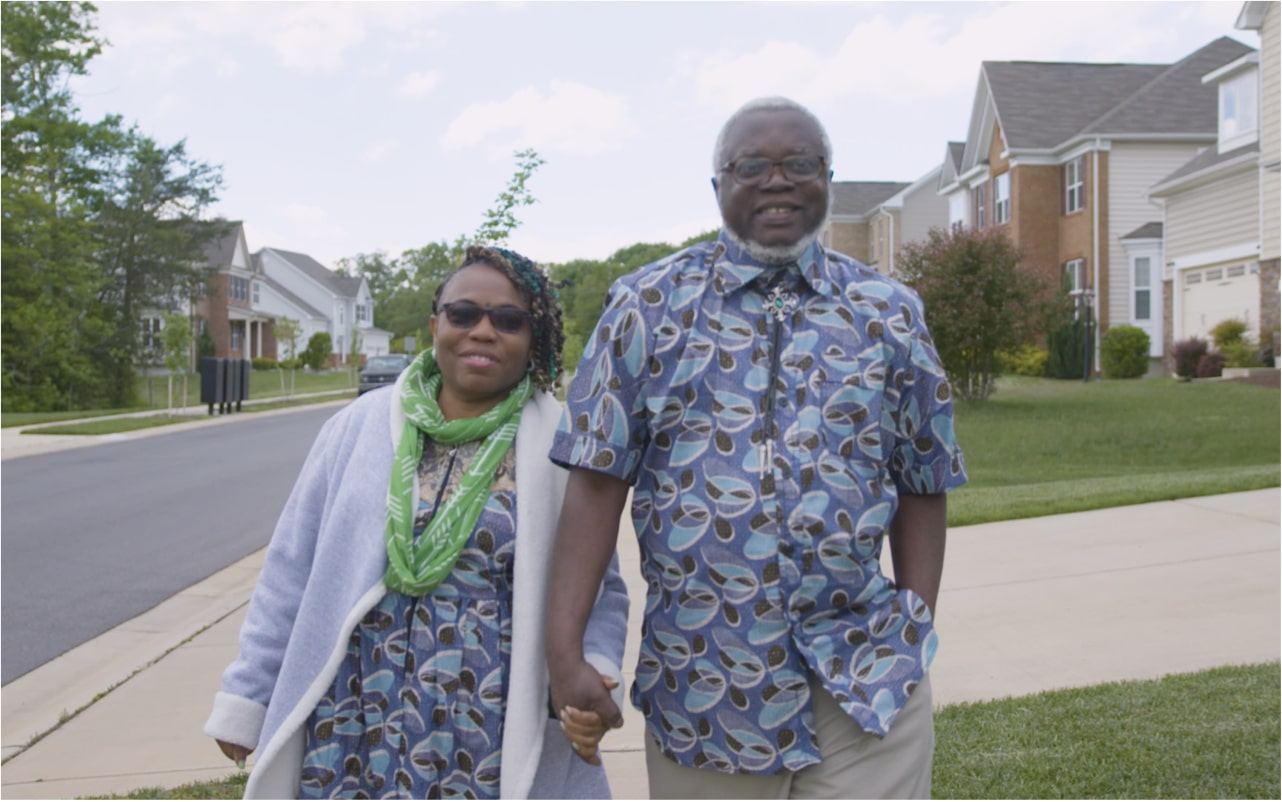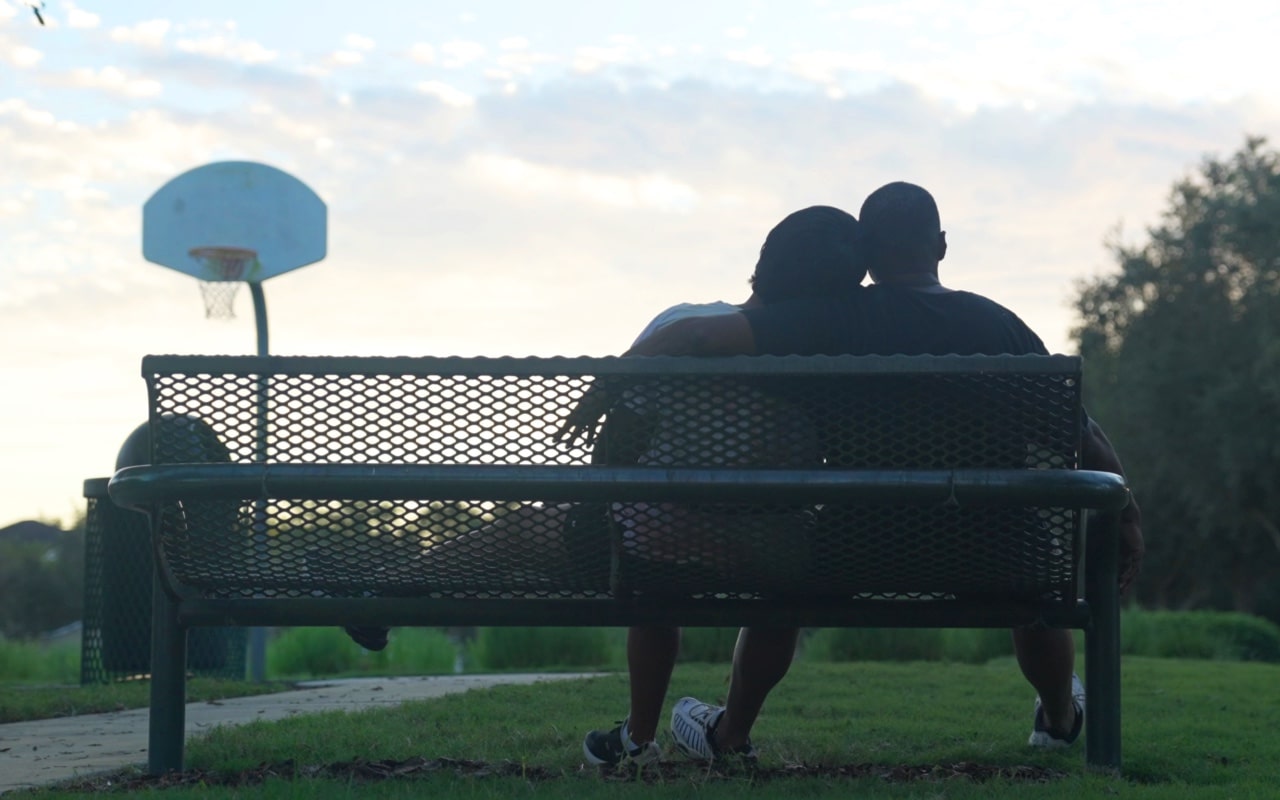Just a few months after she got her master’s degree, Kathi parked her car and found she couldn’t lift her foot off the brake pedal.
She’d been thriving in her career in healthcare administration. By the time she earned her master’s in 2018, she’d been promoted several times and was working as the director of patient access for two hospitals. Her career gave her a sense of accomplishment and respect from peers, as well as a strong sense of purpose in helping other people. “I loved the challenge of my job, having patients come in angry about their bill and doing my best to make sure they left feeling happy,” she said.
Looking back, she now recognizes years’ worth of symptoms leading up to that moment in her car. For instance, on a family trip to an amusement park, she’d had trouble staying on her feet all day without fatigue, despite having no issues during her previous visit. She didn’t connect any of this to the brake pedal incident at first. She just used her hands to lift her foot from the pedal and went on with her day. But the next morning, she found she couldn’t hold her hair dryer up to style her hair before work.
That, she now jokes, was the last straw.
“I’m very particular about my hair,” she said. “The day I couldn’t do my hair was the day I said, ‘That’s it!’ I called my doctor and told him something was really wrong.” A few weeks later in July of 2018, Kathi was diagnosed with myasthenia gravis.
At first, Kathi downplayed her diagnosis, determined to push forward with her life. But she quickly realized that her MG symptoms—on top of the other health issues she was dealing with at the time—were making it impossible for her to keep working. A month after her diagnosis, Kathi retired.
The transition took a while to get used to. “I actually felt really depressed,” she said. “Sometimes I felt like all I was doing was taking up space.”
In my mind, my purpose was to be successful in my career. I decided it was time to rethink that.
She’d brought her framed master’s degree home from her office, and her daughter hung it on Kathi’s bedroom wall as a reminder of her achievements. But for Kathi, it felt more like a reminder of her lost sense of purpose. She explained how she felt to her daughter, asking her to take the diploma down. And her daughter’s response wasn’t quite what Kathi expected.
“She said, ‘Was your job really your only purpose? What about your grandson?’ And I realized that in my mind, my purpose was to be successful in my career. I decided it was time to rethink that.”
She’d heard good things about going to therapy from friends and family, so she started with a few visits. She also used journaling as a way to navigate emotional challenges and explore ways to reframe her purpose and her outlook.
About two years after her diagnosis, Kathi joined an MG group in her area—something that would play an important part in regaining her sense of purpose. “That first meeting was such a positive experience,” she said. “It was really upbeat, with a lot of life hacks for getting around MG in everyday life.” Before long, she was asked to step up as a co-leader of the group, and she’s been doing it ever since.
In this role, Kathi uses the same skills that helped her thrive in her career to uplift other people living with MG—and who sometimes find themselves struggling. It’s important to her to help destigmatize mental health challenges and encourage people to discuss theirs more openly.
She described a recent group meeting when mental health challenges came up during an open discussion. Kathi saw an opportunity to share. “I said, ‘I don’t mind telling you that I have depression. I talk to a therapist. I journal.’ I think once people saw that I—the strong one—was able to share that, they felt more comfortable joining in and sharing their own stories.”
Like many other MG groups, Kathi’s group went virtual in 2020—and that’s helped it grow to more than 220 members all over the country. “We get about 30 or 40 attendees every month,” she said. “It’s such a supportive space. Whenever somebody reaches out to me to join, I always say, ‘I think you’re going to find this an uplifting group.’”
When she’s not organizing activities for the group or doing one-on-one outreach, Kathi is also active with rare disease advocacy organizations. “I’ve probably sent out 20 emails this week,” she said. She’s also met with members of the United States Senate as part of a larger campaign to support the Speeding Therapy Access Today (STAT) Act. If passed, the act aims to help reduce the time it takes to approve treatments for rare diseases and getting treatments to patients who need them more quickly.
I honor my need to rest.
And, of course, Kathi spends as much time as she can with her 3 grandkids. She feels especially lucky that she was able to take on homeschooling duties for her grandson during the shutdown in 2020 while her daughter was busy teaching her own classes virtually. “I have gotten so much more time with my grandchildren because I’m not working,” she said. “What a blessing! Now, I get to reach out to other people all the time and help make a difference for them.”
But even though she dedicates so much of herself to helping others, she also makes sure to take time for self-care, too. “I honor my need to rest,” she said. “I honor my need to cancel an appointment.”
But she quickly added, “Just never my hair appointment!”


